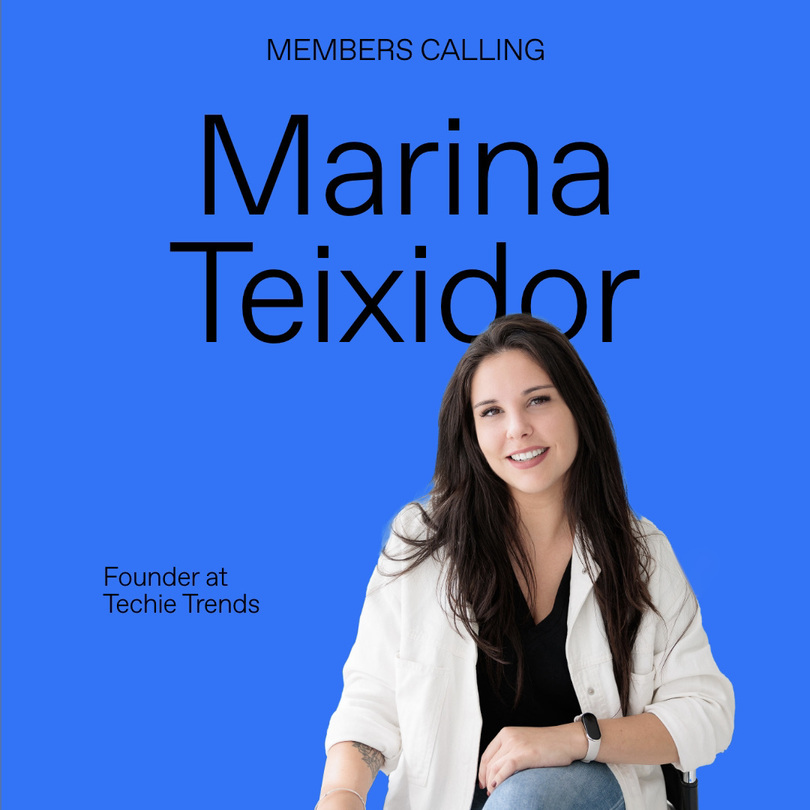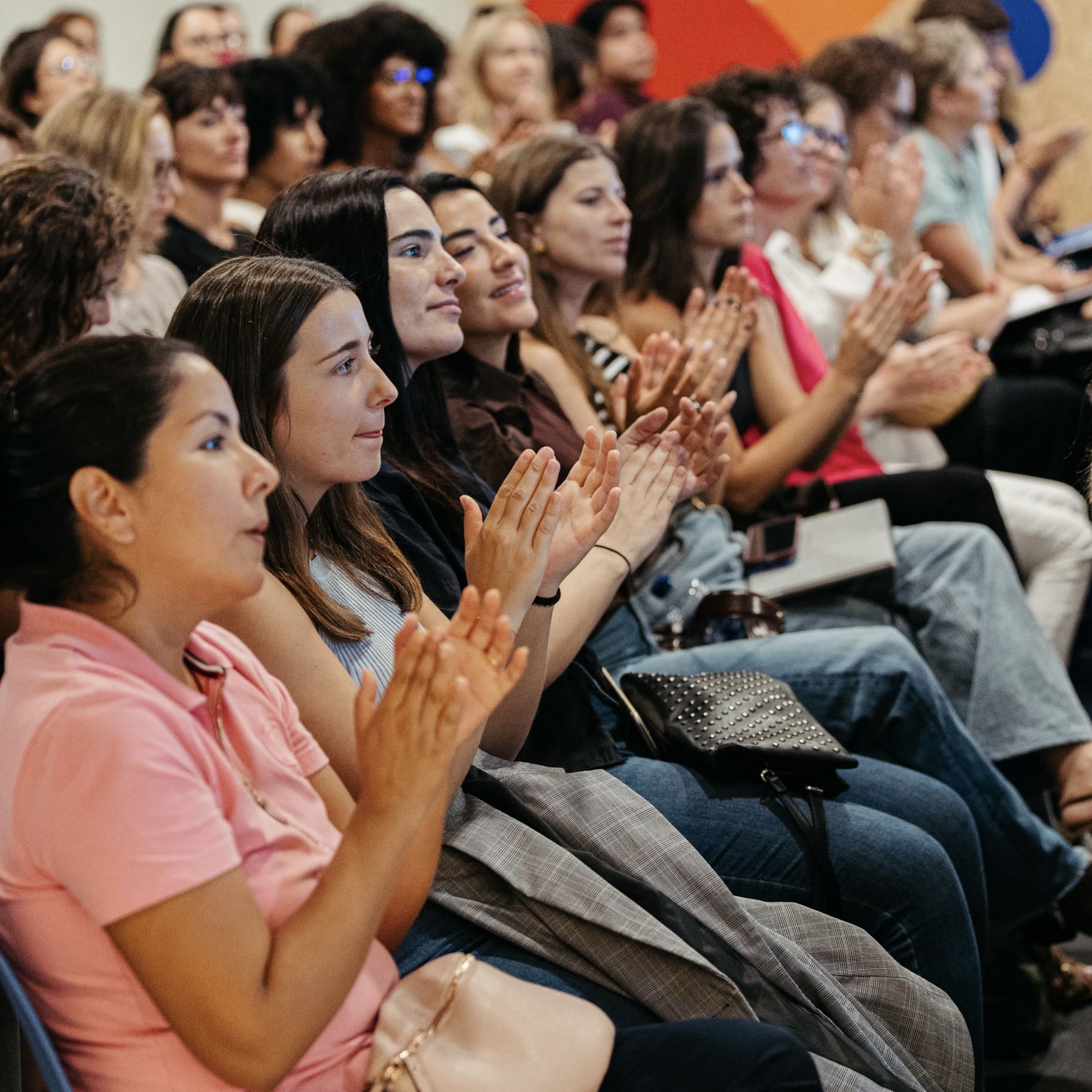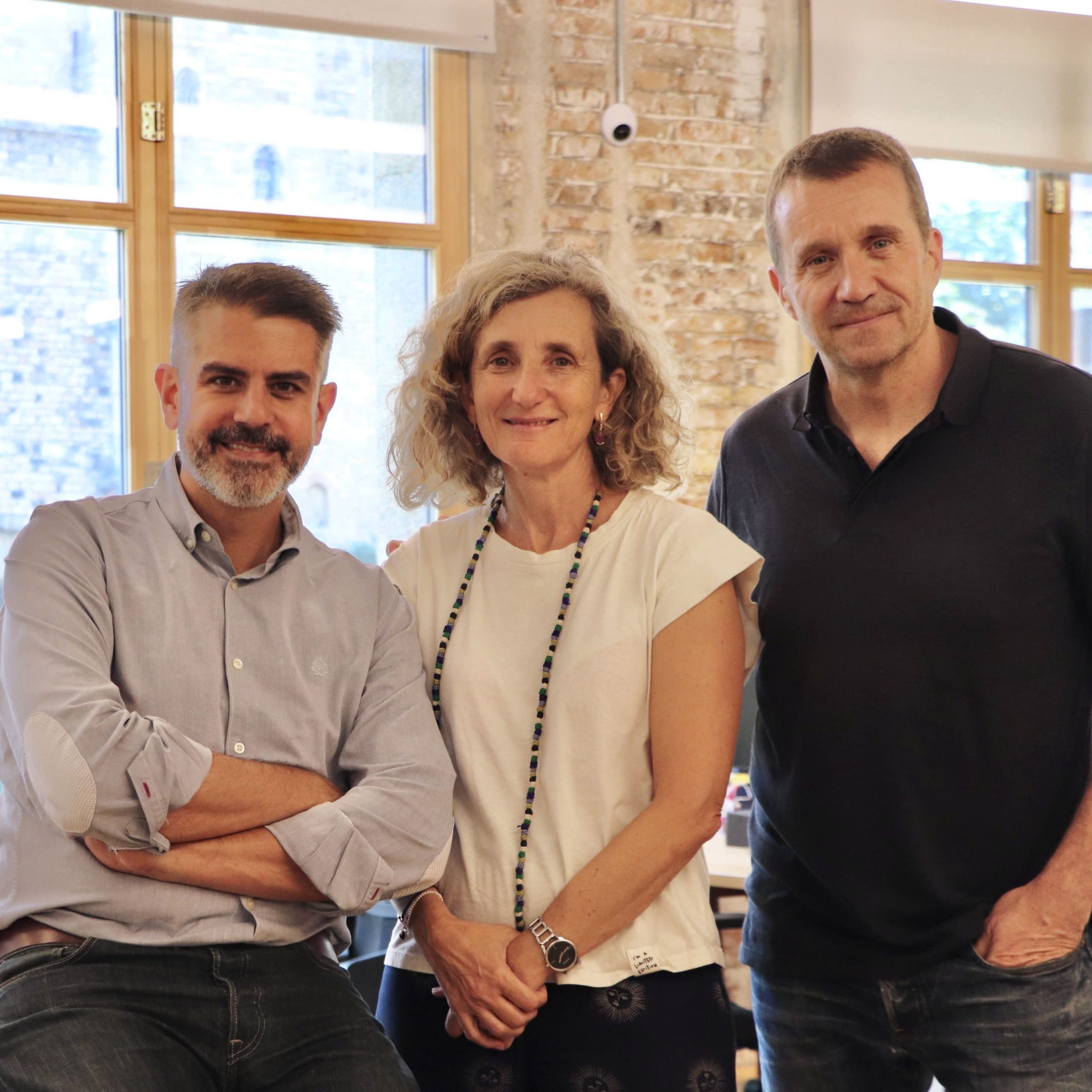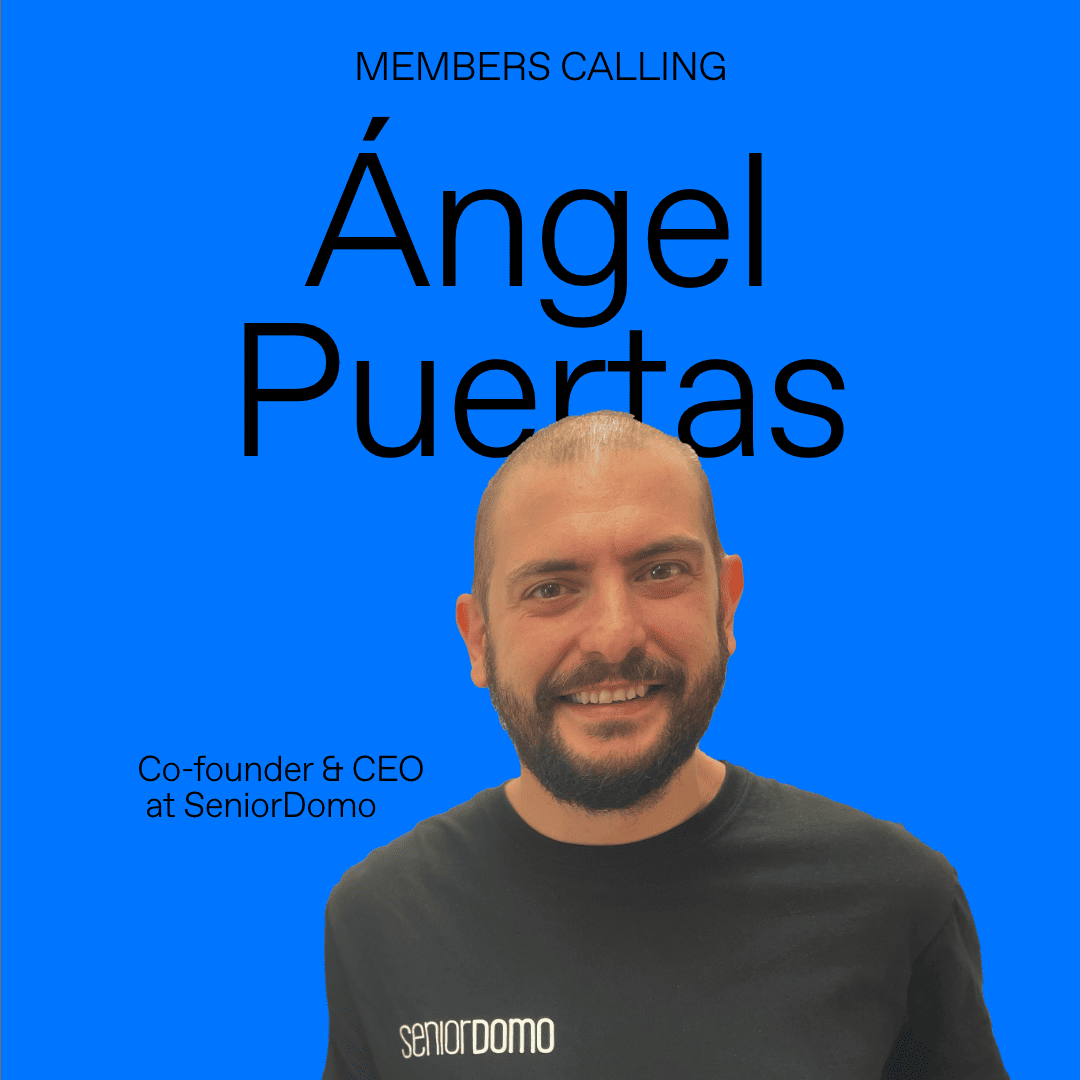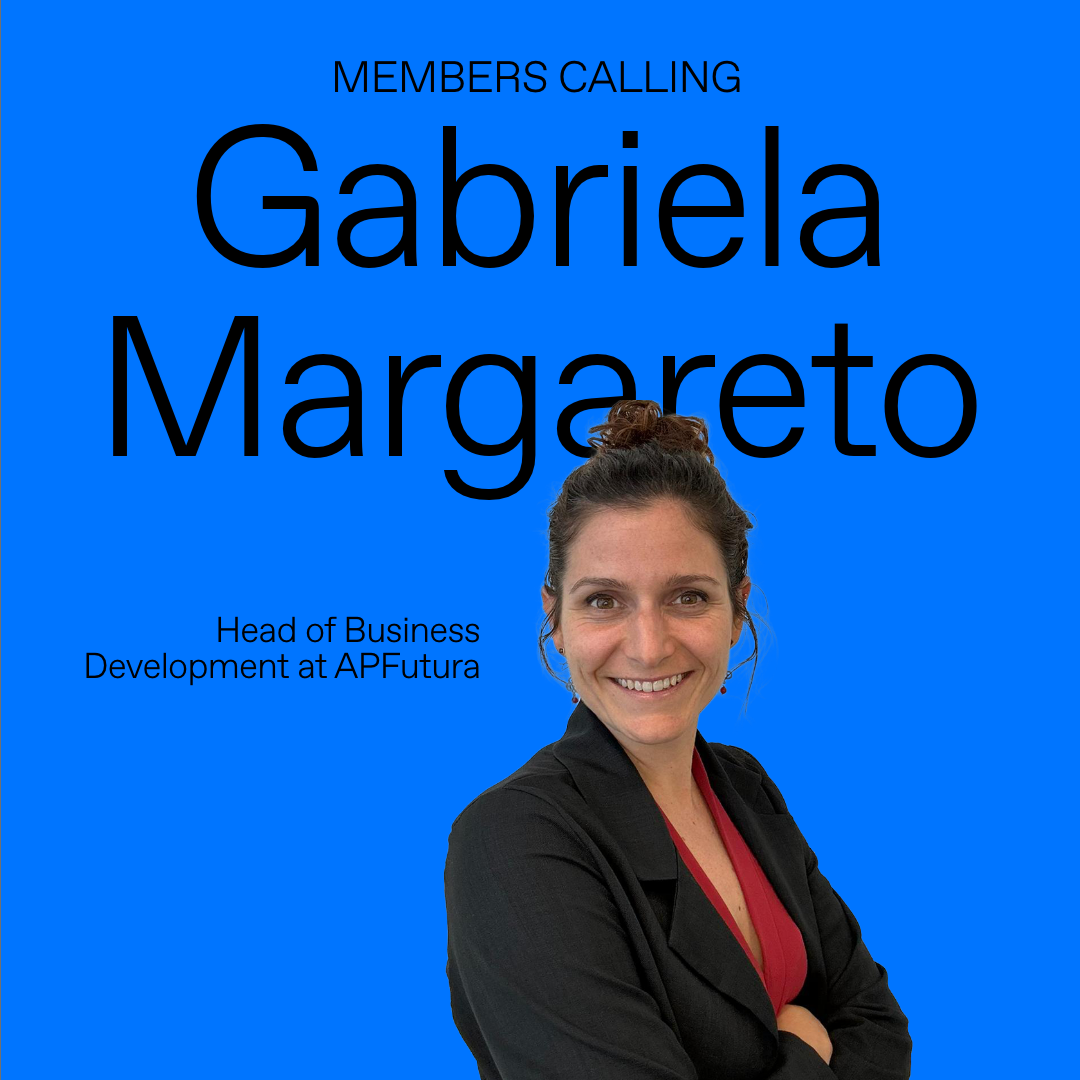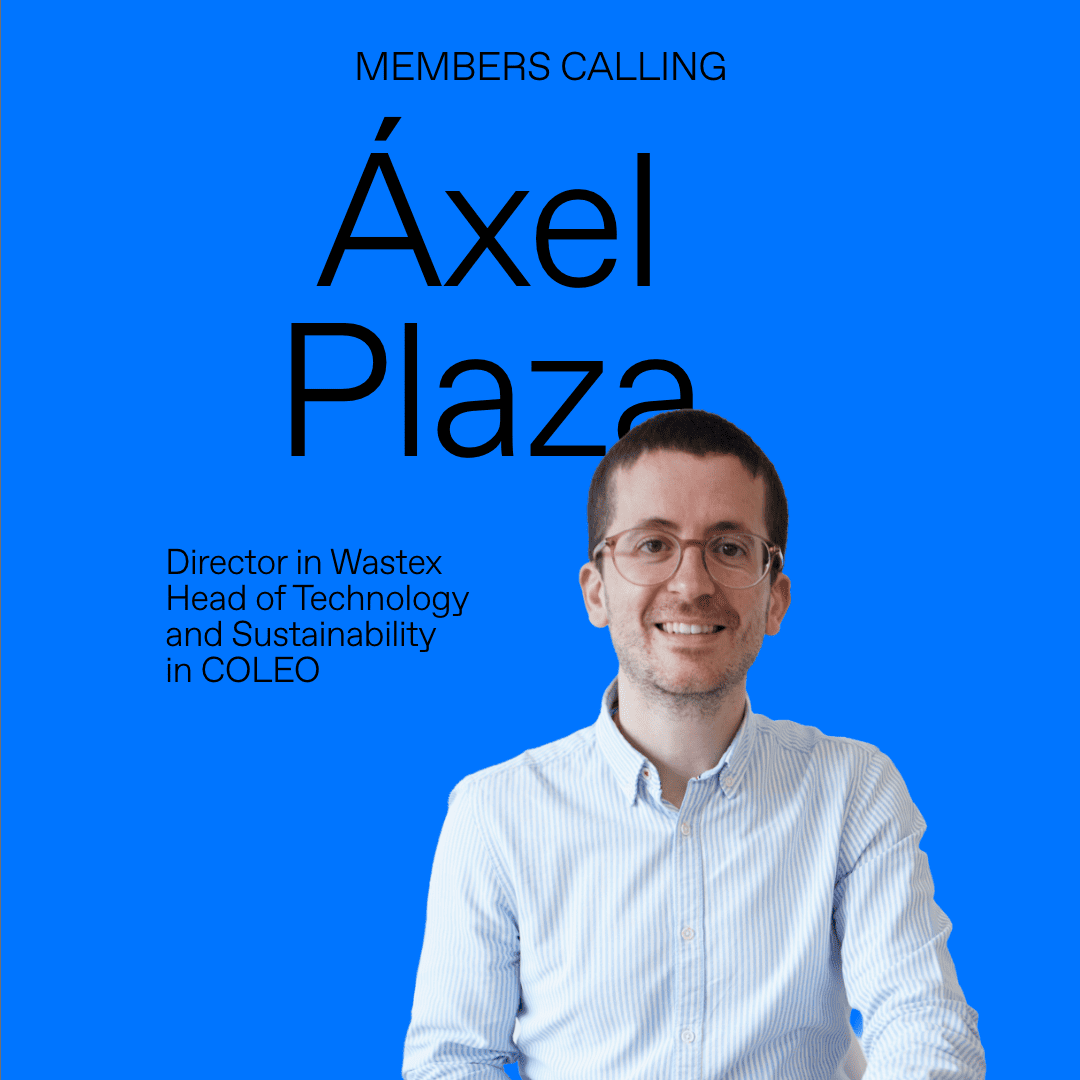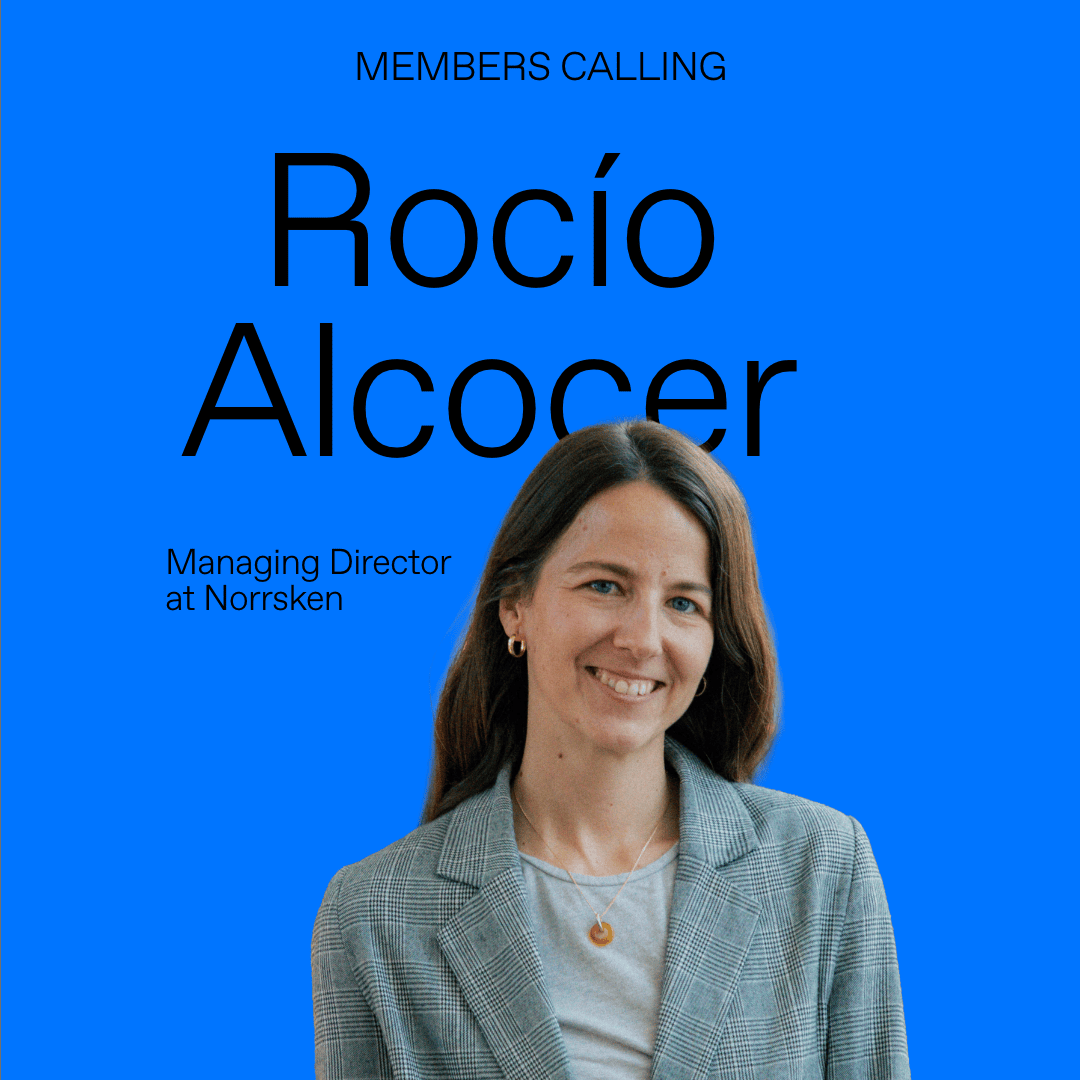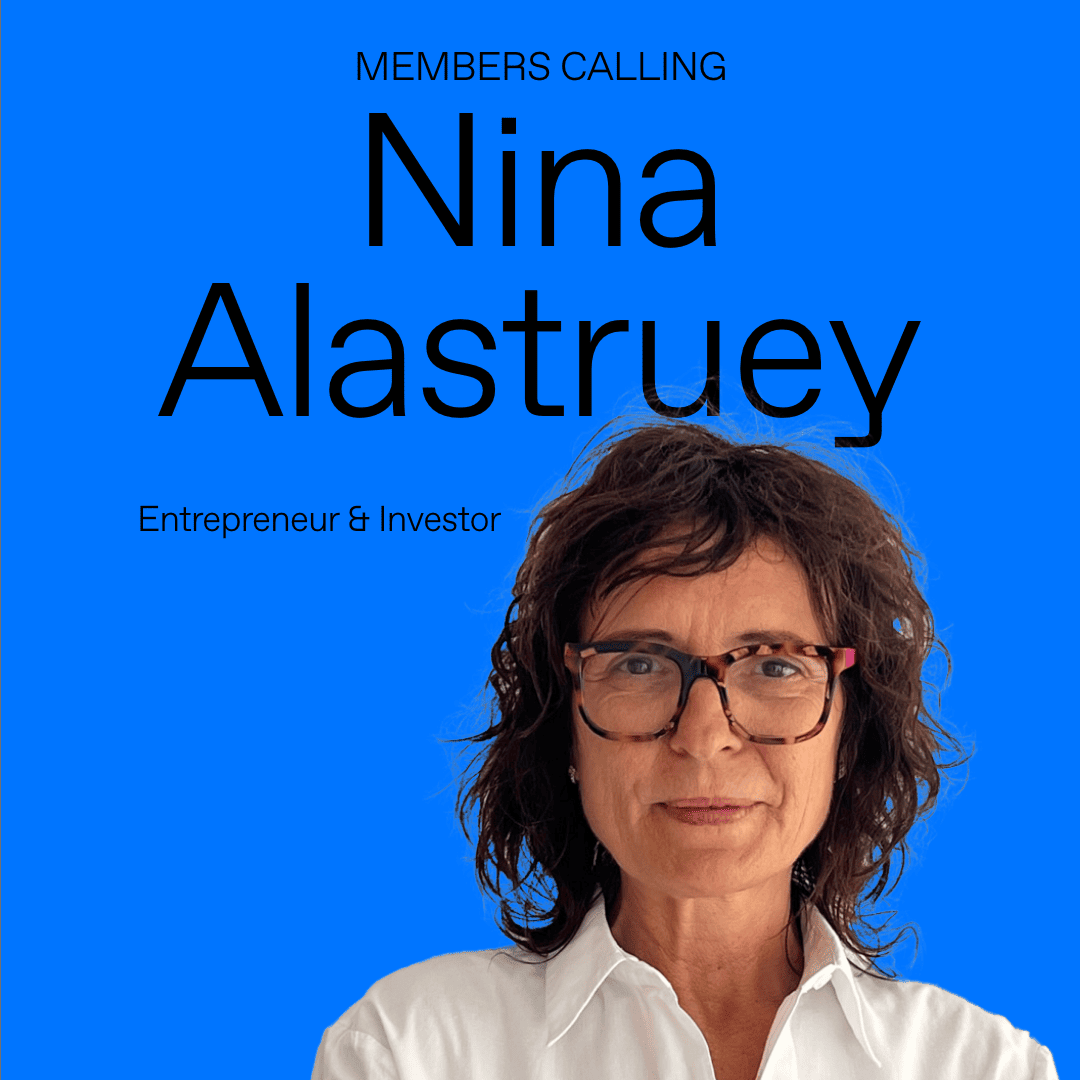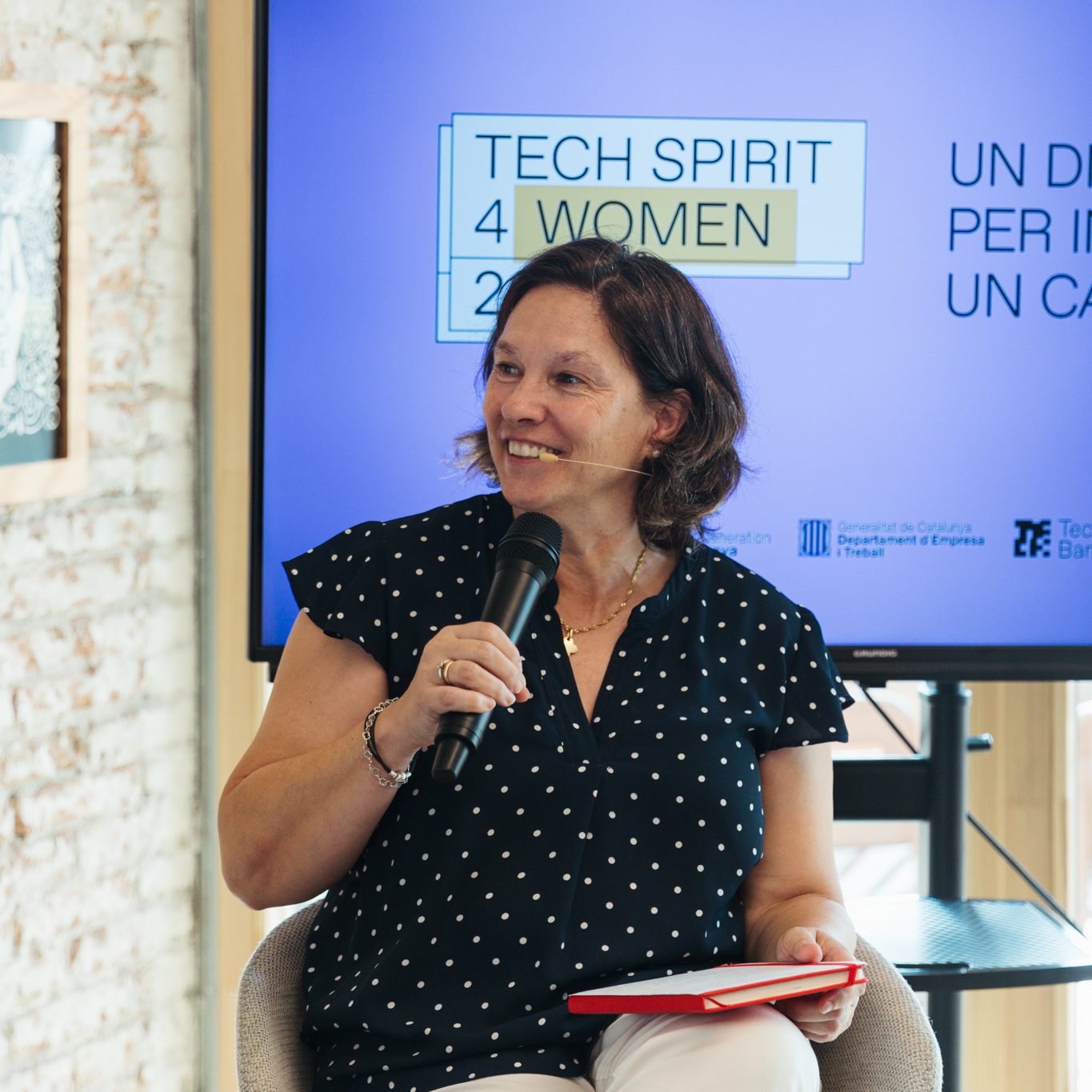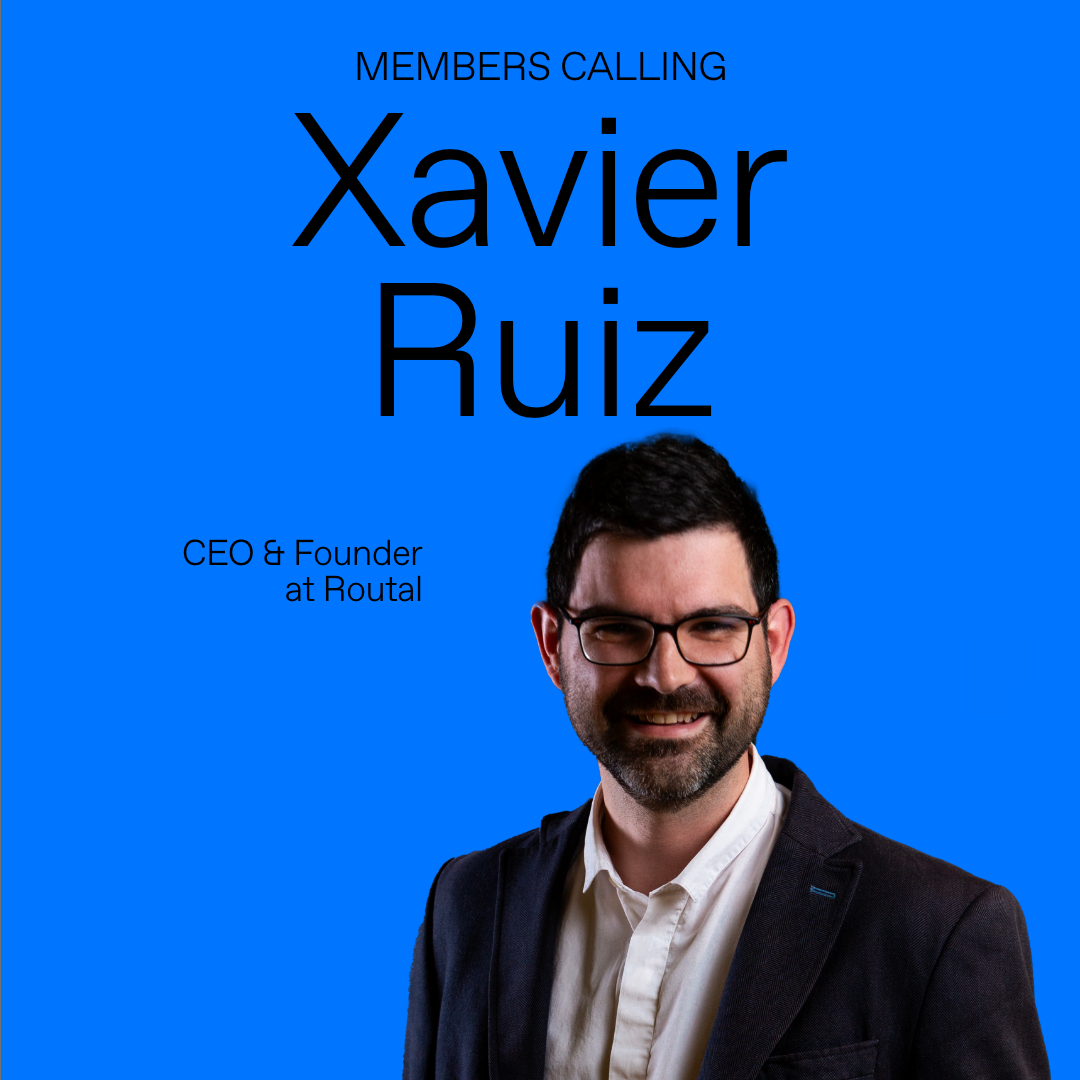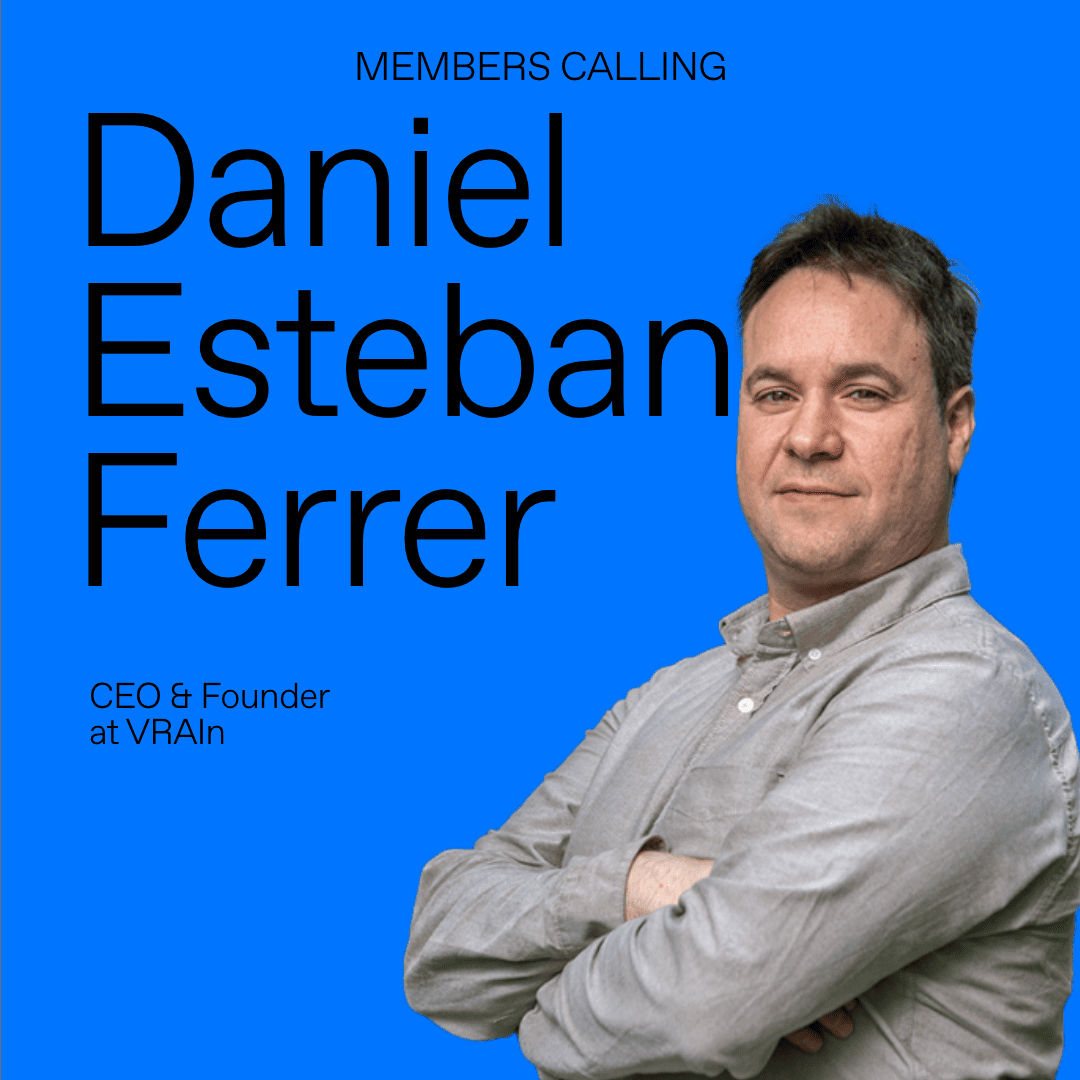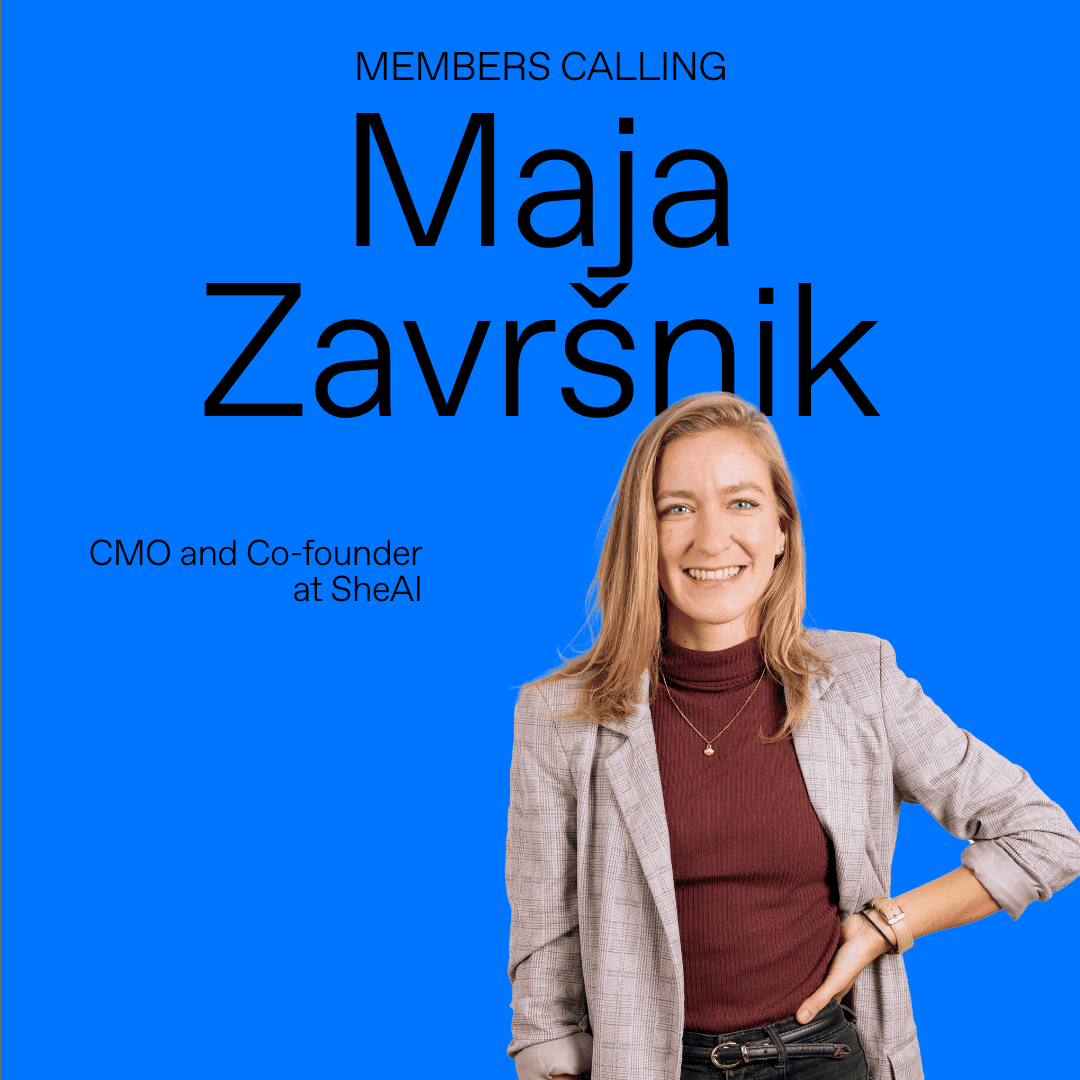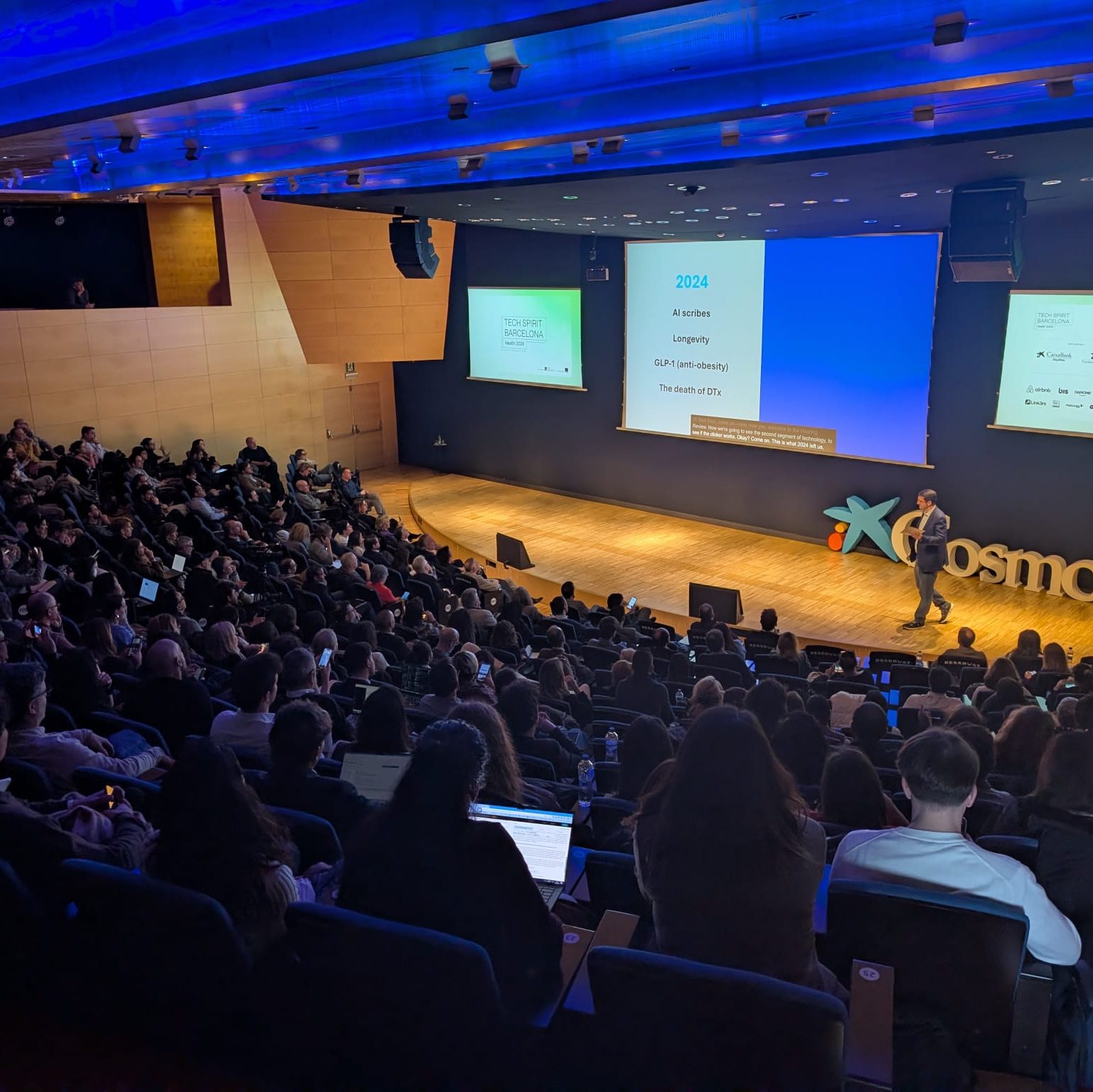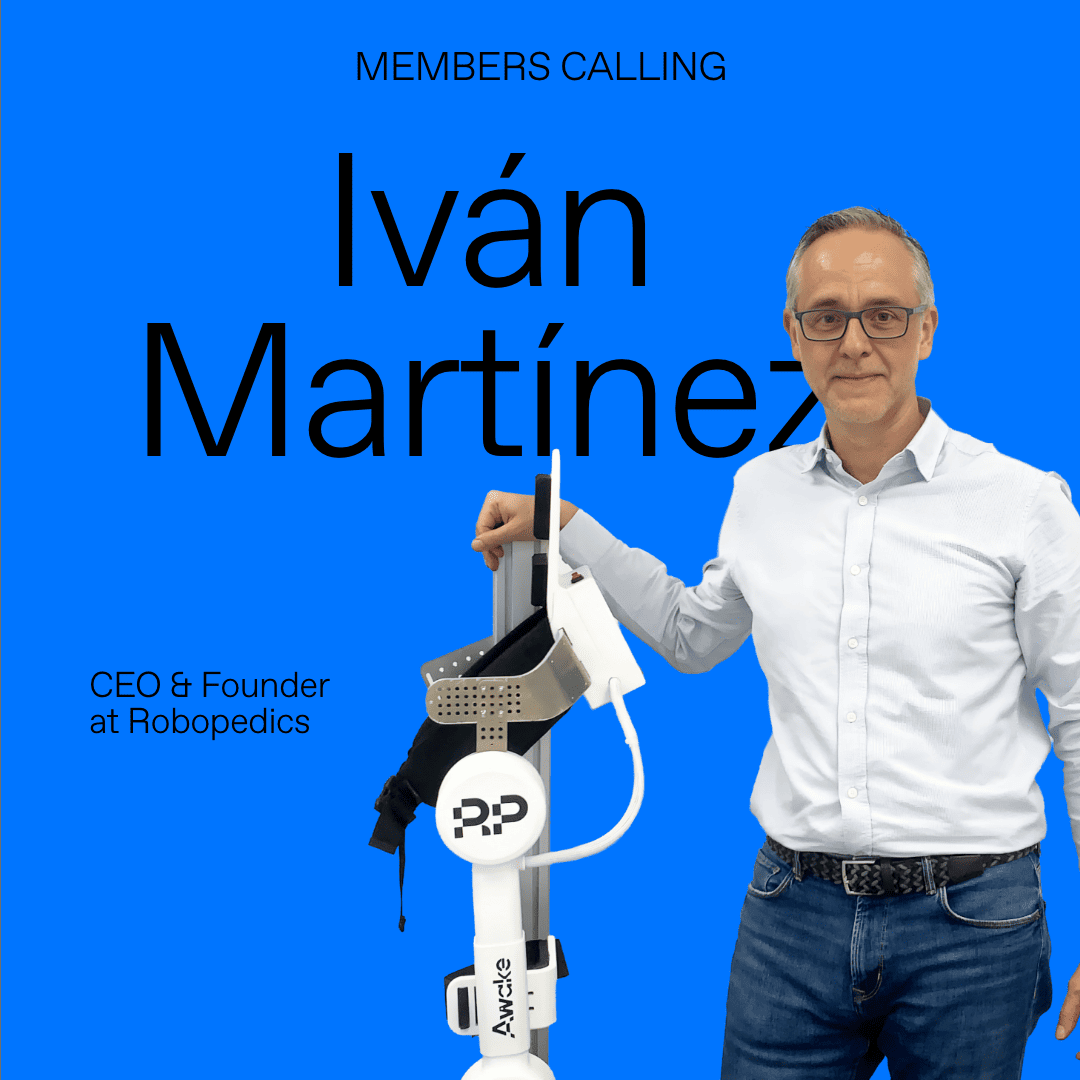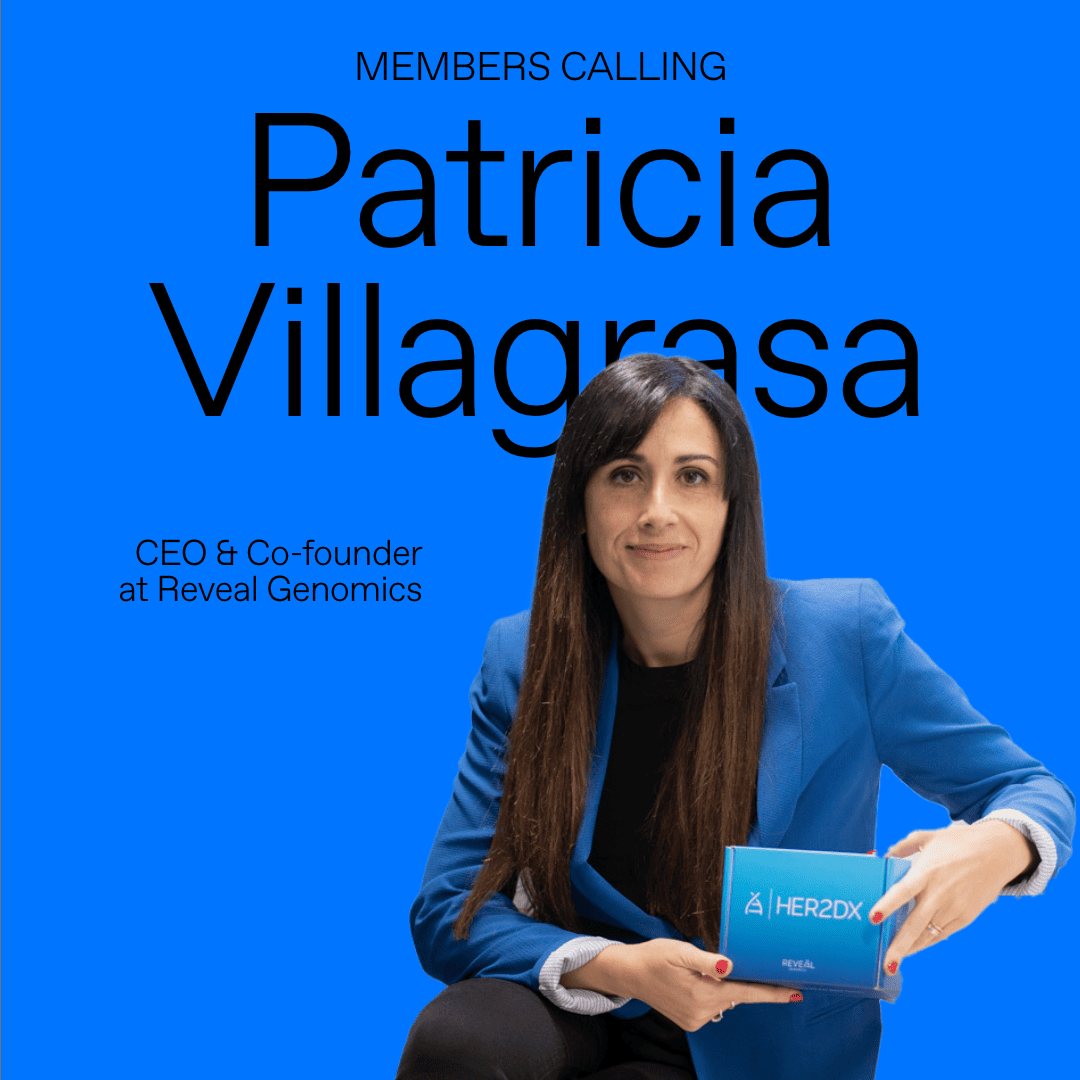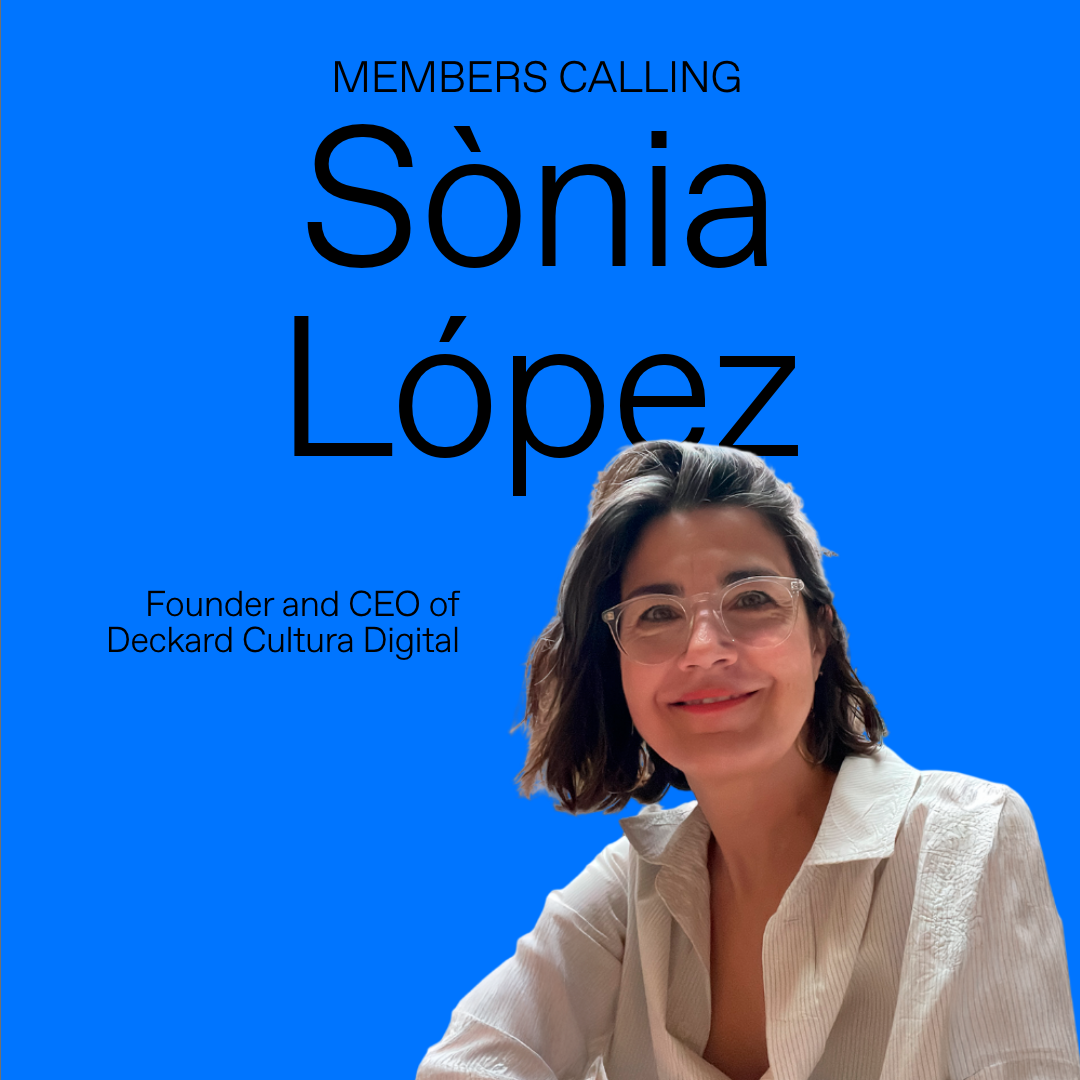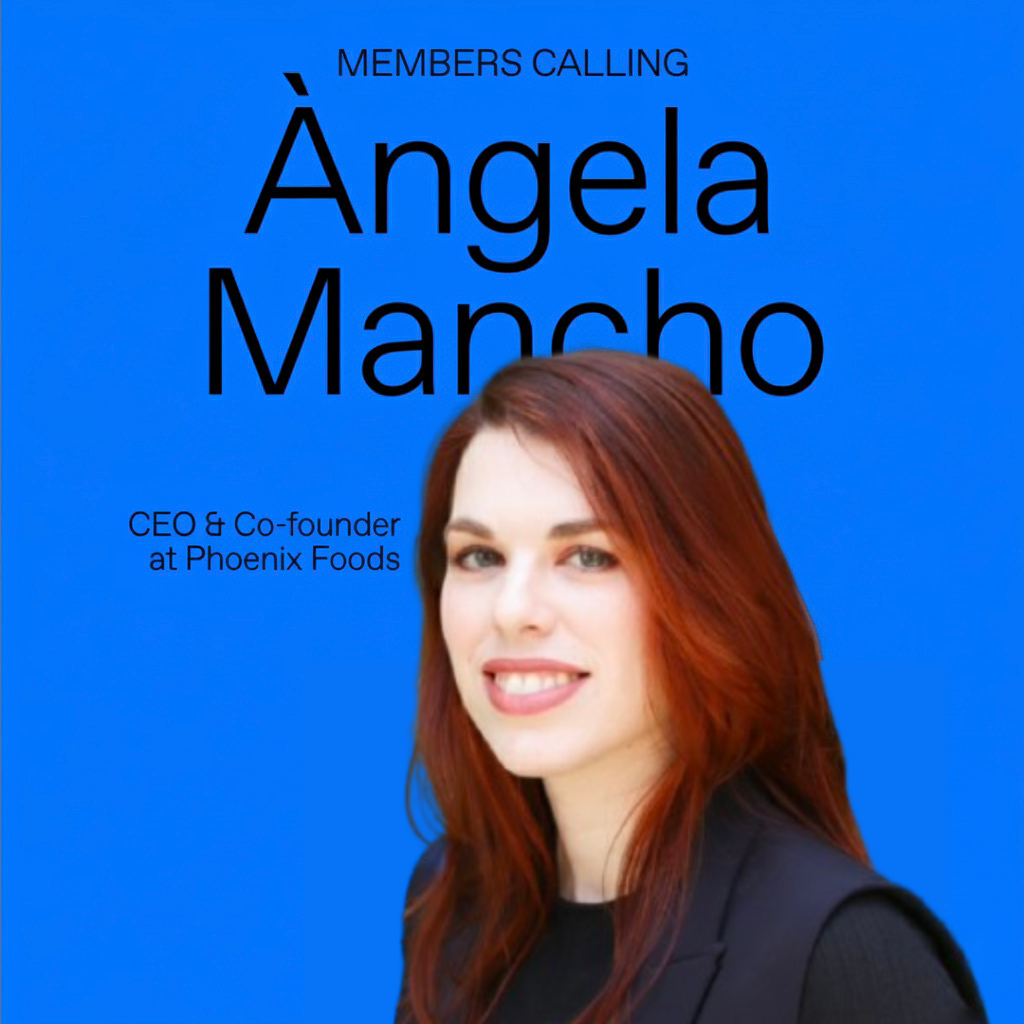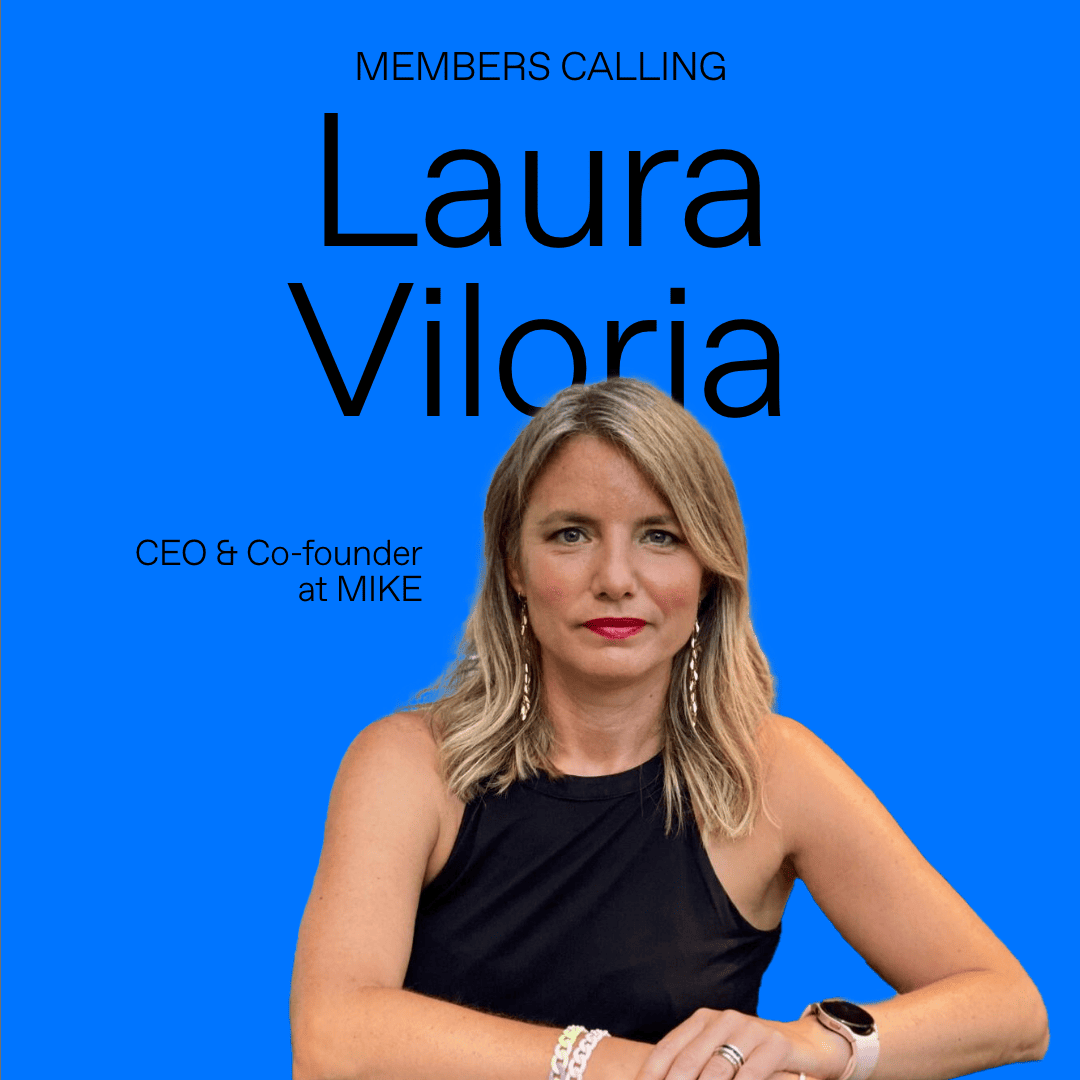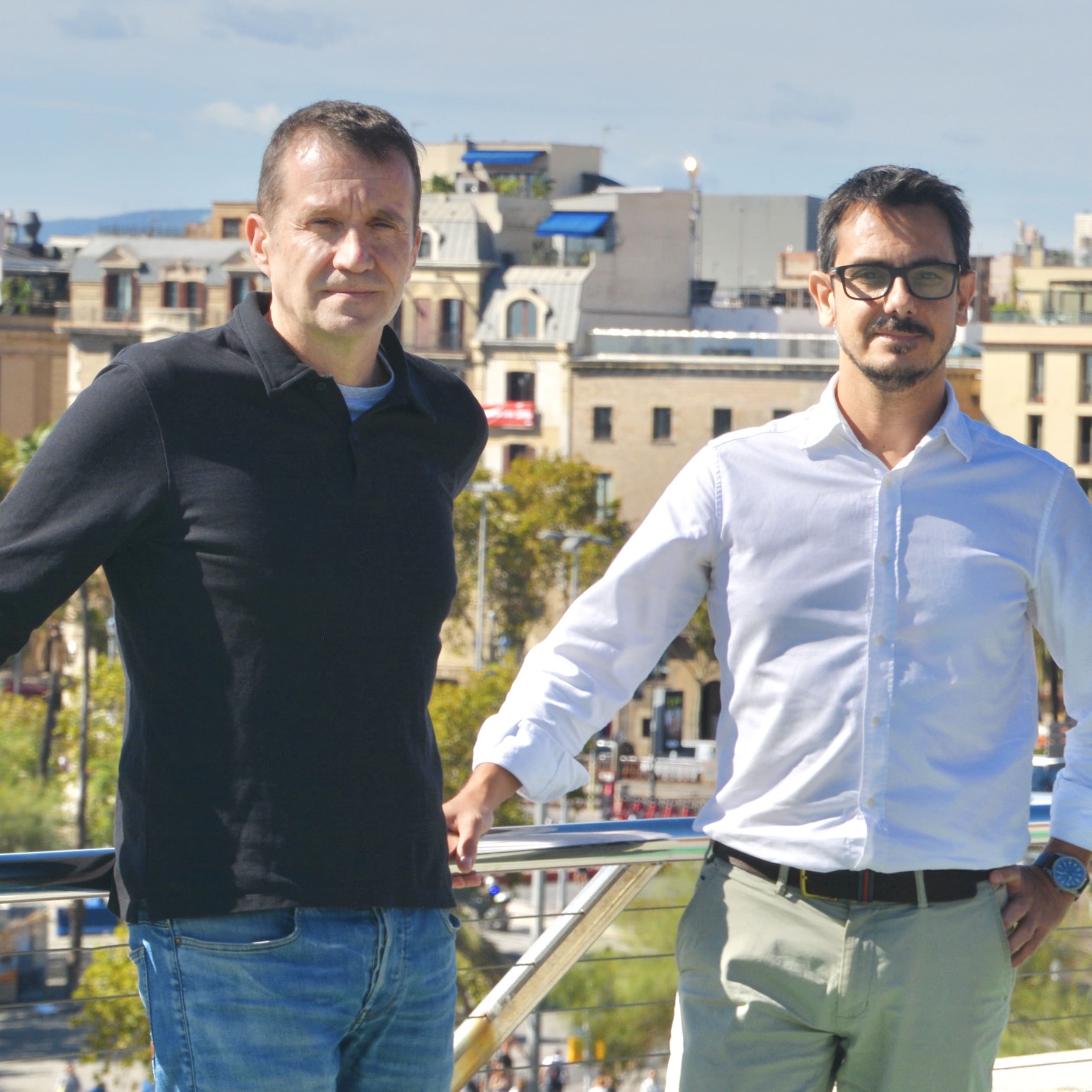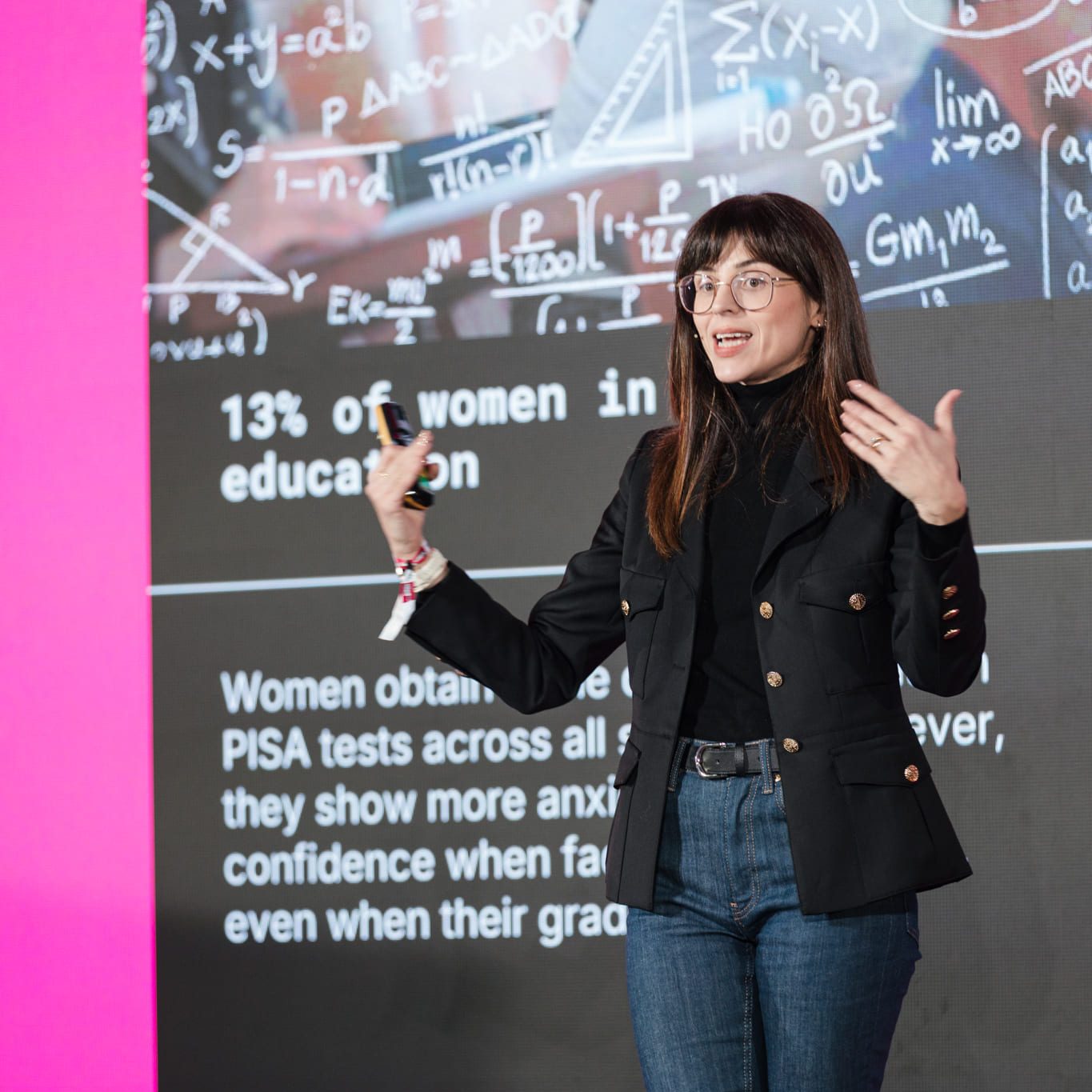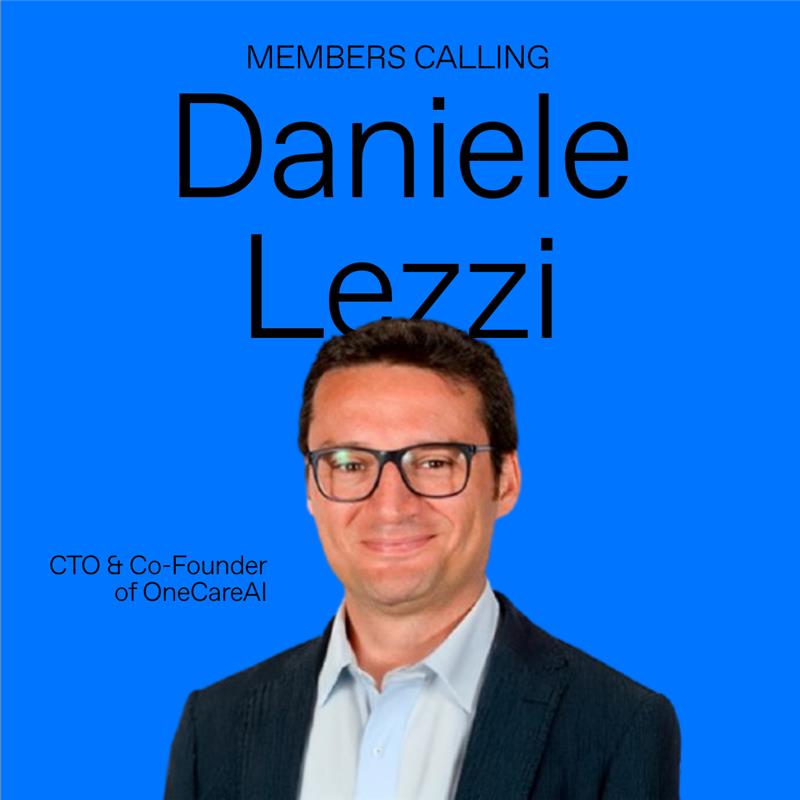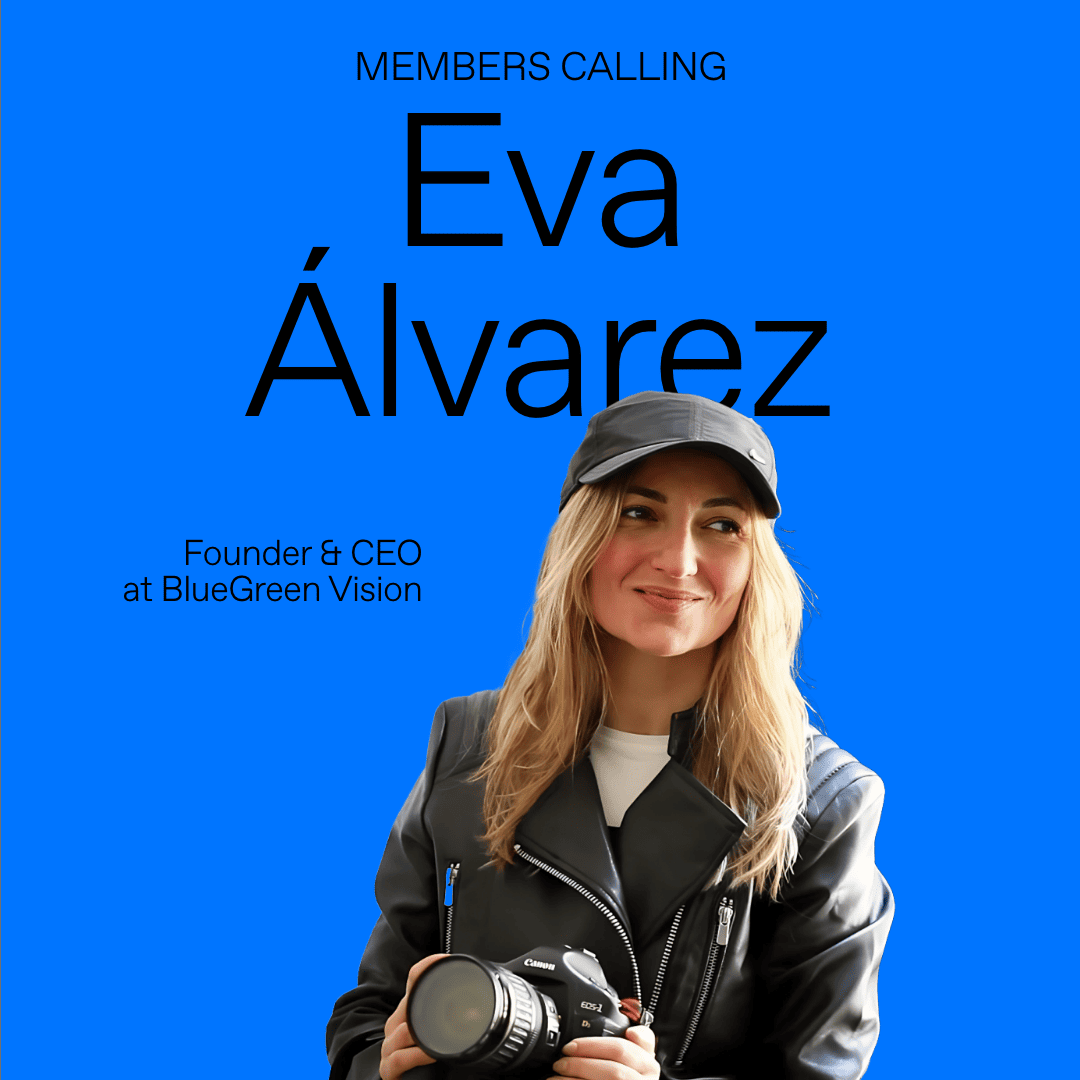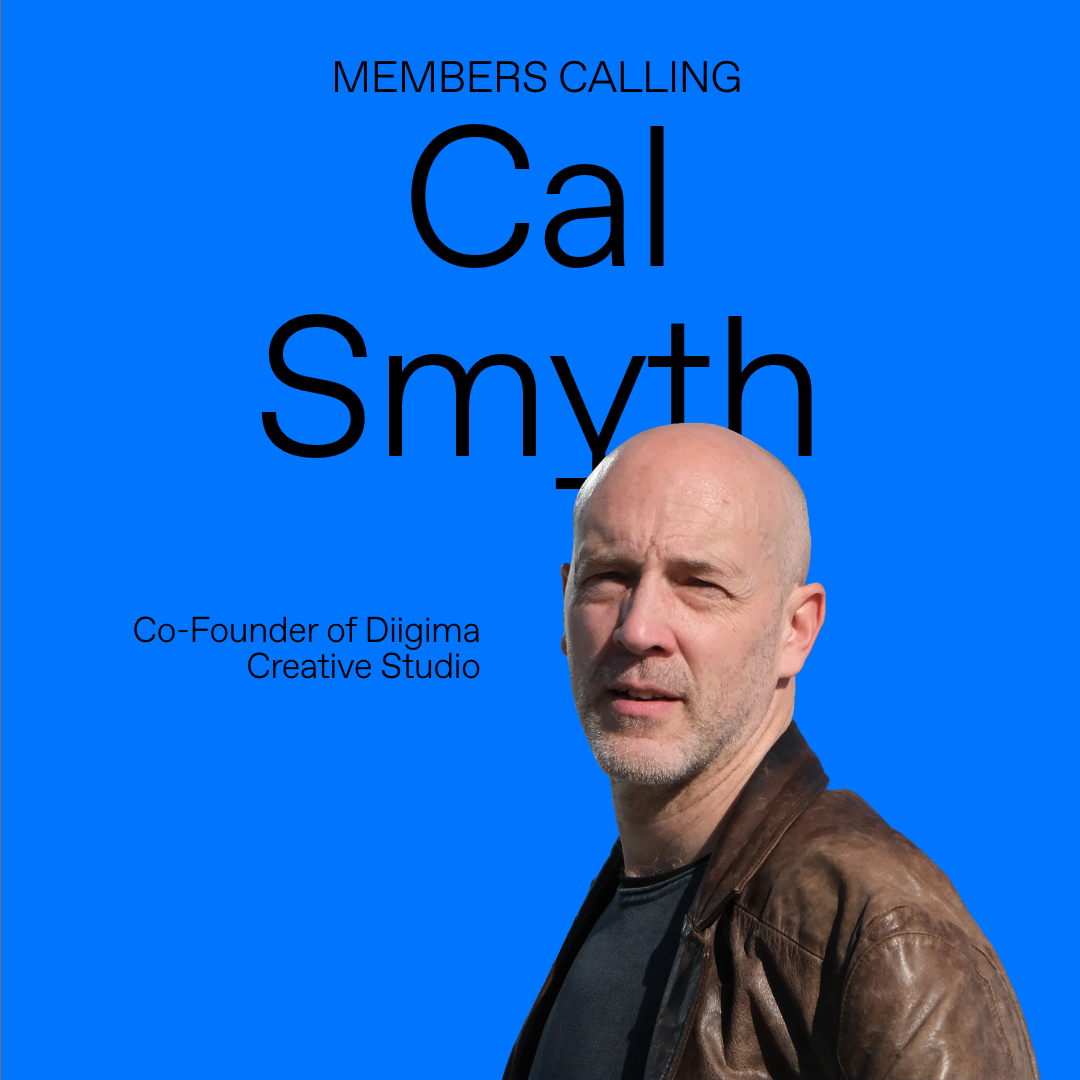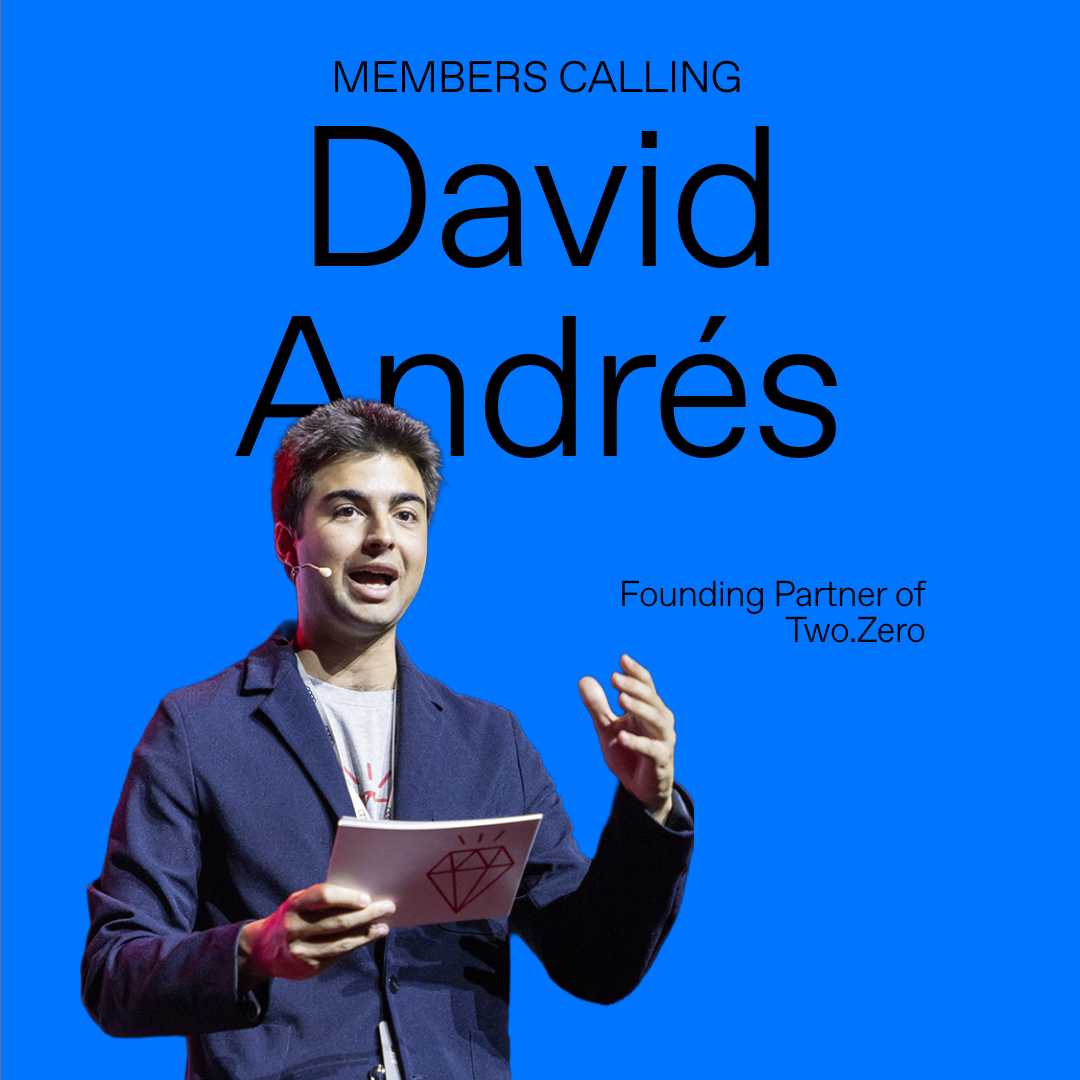It is difficult to describe in a few words who Eva Álvarez (Barcelona) is: photographer, French linguist, sustainability scientist, Master’s degree in oceanography and PhD student in marine sciences. A multifaceted person. At first glance, it may seem difficult to understand how she integrates all these pieces into her day-to-day life, but when you discover that she is CEO and founder of BlueGreen Vision, everything fits.
Her startup reflects her. It is a company that promotes ocean conservation through projects that combine marine research with technological innovation and audiovisual communication. Through science and art, it creates transformative solutions and, at the same time, inspires awareness to protect the oceans.
“By my count, this is my 761st life in the multiverse. And in this one, it has been my turn to defend the oceans.”
TB: What is the purpose of your project?
EA: The purpose of my project is simple, but ambitious: to reconnect humans with the ocean, not only through science, but also through emotion, innovation and awareness. Through BlueGreen Vision, my goal is to protect and restore marine ecosystems, but also to transform the way we look at the sea: from seeing it as a resource to seeing it as a living being, a source of life and future.
We look for technological solutions applied to conservation, we promote educational projects, we work with citizen science and we use art and communication to make people feel the ocean as part of themselves again.
TB: What stage is the project at and where do you see it in two years?
EA: I am in a stage of organic growth and consolidation. We have already sown many seeds: collaborations with institutions, development of lines of action such as marine restoration in ports, environmental education, citizen science and scientific audiovisual communication. Now we are in this moment where everything starts to take shape, where ideas become real projects with tangible impact.
In two years, I see BlueGreen Vision as a benchmark in sustainable marine innovation. A solid project, with a multidisciplinary team, networking with other international initiatives, applying technology at the service of conservation and with scalable projects implemented beyond the Mediterranean. And above all, I imagine it as a platform where science, creativity and social commitment meet to change the way we relate to the ocean.
TB: A good idea you’ve had.
EA: Bringing marine biodiversity restoration to the port environment with my BlueGreen Regeneration project. I proposed to create microhabitats in degraded sediment areas within seaports. It is a way of demonstrating that even the most disturbed places can become refuges of biodiversity.
TB: What has been your biggest challenge?
EA: The biggest challenge has been to make my way as a woman scientist and entrepreneur in an environment that is not ready for projects that mix science, sustainability, art and technology. I don’t fit into a single box and this, at first, was more confusing than helpful. I had to defend disruptive ideas without funding, convince without prior data and create without manuals.
But this challenge became a driving force: it forced me to be creative, to build partnerships from scratch and to trust my scientific and human intuition. Today every little achievement is worth twice as much, because I know how much it has taken to get here.
TB: The best advice you have received.
EA: “Don’t wait until you have everything ready to start. Start and the path will open up”. I was told this at a time when I had a lot of ideas, but too many doubts. This advice helped me to take the plunge, to trust my vision even if I didn’t have all the resources, and to understand that action is a way to build clarity. Today, every step I take confirms that starting imperfectly is better than never starting at all.
TB: A role model.
EA: My great role model is Jane Goodall. Her life, her work and her view of nature have had a profound impact on me. I was lucky enough to meet her in person, but the moment that had the greatest impact on me was seeing her in a documentary saying ‘Y have to do something’, in reference to the climate crisis.
At that moment, something went on inside me. I also said to myself: “I have to do something”. It was the turning point that made me stop dreaming of doing something for the planet and start doing it for real. Jane taught me that you don’t have to wait until you have all the resources or answers: you have to start, even if it’s just a small gesture, and do it with compassion, courage and perseverance.
TB: A technology that will mark the future.
EA: One of the technologies that will mark the future is bioengineering applied to ecosystem restoration. We are already beginning to see how solutions based on nature – such as biomimetic substrates – can be designed to recover degraded habitats, even in environments as altered as ports.
I am particularly interested in seeing how this technology, combined with sensors, AI and citizen science, can help us to generate biodiversity, capture carbon and adapt to climate change. It is not just a matter of using technology, but of co-creating with nature, learning from it, and applying this knowledge to repair what we have damaged.
TB: A startup or company.
EA: One initiative that inspires me deeply is Mission Blue, led by the legendary oceanographer Sylvia Earle. I find her vision of creating a global network of ‘Hope Spots’ (key sites for ocean health) both powerful and necessary. I am inspired by her courage, her scientific rigour and her ability to mobilise society in defence of the ocean out of love and urgency.
TB: What helps you disconnect?
EA: Reading, reading and reading. Going to nature, watching documentaries and doing sport. But more than disconnecting, I would say that I seek to reconnect with myself, with what is simple and essential. That’s how I recharge my energy to continue creating and fighting for what I believe in.
TB: A book to recommend.
EA: In the field of entrepreneurship, “Learning from the best”, by Francisco Alcaide: a compilation of ideas, principles and lessons learned from great leaders in leadership, personal development and business. I like it because it is not read in one sitting, but has to be retrieved at different times. Each chapter is a dose of focus, clarity and motivation, something very necessary when you are building a project from scratch. It’s like having one-on-one mentoring whenever you need it.
TB: A series, film or song that defines your moment in life.
EA: It might seem contradictory to choose “Lost” at this moment in my life, because I don’t feel lost, on the contrary. It’s always been my favourite series and I find a very nice parallel with what I’m living now. The plot unfolds on an island that seems inhospitable, chaotic, even hostile. But in this environment transformation, cooperation and deep connection to nature and to the essential flourish.
I feel right at this point: in a place that seems remote to many, but full of potential, magic and answers. When you let yourself be transformed by your surroundings and commit to something bigger than yourself, you really begin to find your purpose. Also, Lost is a story of second chances. And I feel like I’m building mine, from the sea out into the world.
As a song, “Unstoppable”, by SIA, accompanies me like a mantra. Every time I listen to it, it connects me with my inner strength, which keeps going despite fears, challenges or doubts. And that’s how I feel now: invincible, not because I don’t fall, but because I always get up. In my journey as a scientist, entrepreneur and creative woman in the environmental world, I have often had to push through doors that were not open. This song reminds me that I have the ability – and the right – to open them.
As a film, “Avatar”, because it represents many of the things I believe in and work for: the connection with nature, the conservation of ecosystems, the respect for other forms of life and this powerful mix between science, spirituality and action. The main characters learn to look at the world with different eyes, to listen with their whole body and to stop conquering and start caring. And I am at this point: creating projects that seek not only to conserve, but also to heal the oceans, people and ourselves. Moreover, Avatar reminds me that we are not separate from nature: we are part of it. And that when we align ourselves with its rhythm, with its wisdom, extraordinary things happen.
TB: A recipe, a restaurant.
EA: My signature recipe is a Thai coconut curry with seasonal vegetables and marinated tofu. I like it because it’s like the sea: deep, nourishing and always changing according to the local ingredients. Cooking it is almost a meditation.
One of my favourite restaurants in Barcelona is Teresa Carles or its more modern version, Flax & Kale. They have a creative vegetable approach, with colourful, tasty and very conscious dishes.
TB: A place in the world.
EA: Bali connects me deeply with nature and with myself. Its energy is special: between volcanoes, jungle and ocean, everything breathes life and balance. It inspires me a way of living in harmony with the environment, respect for natural cycles and this spirituality that intersects with everyday life. It is a place where I feel that body, mind and purpose are aligned. And where the ocean is not just a landscape, but a sacred presence.
TB: Where would you invest 100k?
EA: I would invest BlueGreen Regeneration, my current project, which brings together science, technology and ecological design to regenerate marine life in spaces where so far no one is looking. It’s time to act and show that restoring the sea can also be a strategic, profitable and urgent commitment.
TB: If you weren’t an entrepreneur…
EA: I would probably be on a scientific expedition to some remote corner of the planet, documenting marine life with a camera in one hand and a field notebook in the other. Or perhaps I would be working in an international organisation, promoting marine conservation policies. But it’s true that, even if I changed my form, my essence would remain the same: to communicate, protect and reconnect people with nature.
TB: What does Tech Barcelona mean to you?
EA: For me, Tech Barcelona is a meeting point for innovation, talent and purpose. It’s this space where ideas connect, where technology is a tool to transform reality. I like it because it fosters a diverse ecosystem, where a marine catering startup like mine can share a table with other different projects, and we can all enrich each other. Tech Barcelona represents this new way of doing business: collaborative, open, creative and with real impact.
